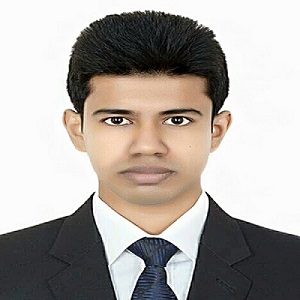Educational instts face serious crisis

Many students have expressed frustration about continuing their academic activities amid the uncertainty over corona crisis.
All the educational institutions remain shut for an indefinite period of time due to coronavirus pandemic since March 17.
As a result, country’s five crore students from pre-primary to tertiary level are in uncertainty over future of their academic courses.
It is not possible to take the first-term examination at school level. The educational institutions have been declared closed till May 30 in five phases.
Higher Secondary Certificate (HSC) and equivalent examinations have already been postponed. Although the scheduled time has passed, the results of Secondary SC and equivalent examinations have not been released yet.
In this situation, experts, guardians and students expressed their fear about prolonged session jam and other academic casualties due to such stagnation situation.
In order to continue their studies, regular classes have been introduced on Sangshad television in various categories from primary to secondary levels in schools.
However, this process has not become very popular as many students are not accustomed to online or virtual distance learning, guardians said.
Many students are not interested in attending classes broadcast on TV. In addition, there are many errors in the video recordings of the lessons on Sangshad TV, complained many guardians.
The Department of Secondary and Higher Education has also acknowledged their limitations in this regard. They said teachers were trying to overcome this crisis.
Many parents have said that their children do not want to study being home. It is also not certain when the educational institution will reopen after the Eid festival.
Rina Rahman, a guardian said, “My children do not study at all at home since the school has been closed. The lessons broadcast on Sangshad TV also seems to be of quite poor quality which is why my children are not showing their intrerests.”
Sumoy Barua, a fourth-year student of Chittagong University, said “Other universities have opted for online based lessons to continue their academic activities but our university has taken no such steps regarding this decision. If this situation continues, we have to face session jam and our study will be badly hampered.”
Anik Ahmed, a fourth-year student of sociology department of Dhaka University said, “I am worried about the situation. We don’t know how long the present coronavirus situation will last. We are going to face serious session jam. Authority should immediately take steps to overcome the crisis.”
Experts in a recent online discussion, organised by South Asian Network on Economic Modelling (SANEM) said that COVID-19 already left an adverse impact on the education sector. It would also increase the rich-poor disparity in the education system.
“We did not develop alternative means for education of children living in the remote or hard-to-reach areas,” said Rasheda K Choudhury, executive director of Campaign for Popular Education.
They pointed out that many parents of these children became jobless or are facing acute financial crisis for the coronavirus outbreak in the country, losing the capacity to send them back to schools again.
Dhaka University English Professor Syed Manzoorul Islam predicted that the number of dropouts may increase to about 30 percent as many parents do not have jobs or are facing serious economic crisis for the prolonged holidays.
“These parents may engage their children to earning opportunities which would create serious social problems,” he said.
Bangladesh Bureau of Statistics (BBS) showed that the poverty rate would rise to 40 per cent from 20 per cent due to the impact of COVID-19.
Director General of directorate of primary education Md Fashiullah said, “The government is planning on short-term, mid-term and long-term action plans for mitigating adverse impact of COVID-19 on education.”
Contacted, Professor of Institute of Education and Research (IER) of Dhaka University Dr Mohammad Ali Zinnah told Bangladesh Post, “Online education cannot be an alternative to formal education. It is not possible to take examination without completing the courses. Most of the public university students are not familiar with online classes or they do not have this opportunity. There is no alternative to formal education here.”
He also said, “Most of the universities take semester based classes. If the universities remain shut until September, students may suffer at least five to six months session jam.”
To reduce the session jam, he suggested taking extra classes after opening the universities.



